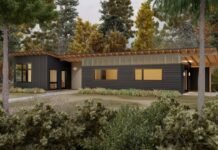An Overview of the Current Housing Market and the Best Way to Shop for Homes
Earlier in the year, the housing market experienced a phenomenon with historically low interest rates. Some qualified homeowners and buyers were able to secure interest rates as low as 2 percent. This meant that a lot of people who weren’t thinking about refinancing pulled the trigger to lock in a new low rate. Meanwhile, those who lived in apartments were suddenly motivated to find their dream home.
Now entering into 2023, the landscape of the real estate market has drastically changed, as has the state of the economy. We won’t weigh in on whether we’re actually headed toward a recession, but what we can say for sure is that inflation has been an ongoing problem. According to recent statistics, the year-over-year inflation rate in the U.S. is 7.7 percent when comparing October 2022 to October 2021.
A small percentage of that has to do with government spending. However, the two bigger culprits behind the inflation issue lies with supply chain issues and not having enough supply to meet demand. On a day-to-day level, we see this when buying groceries and other essentials. We also see this on big ticket items, such as automobiles and homes.
To combat the inflation issue, the Fed is steadily increasing interest rates across the board. Although this tactic is great from a cost-savings perspective on essential day-to-day items, it also means that interest rates won’t be nearly as good as they were earlier in the year. Let’s break down what this means for the current real estate marketplace in Colorado and how to find new build homes in Denver.
The Current Housing Market in Colorado
Before digging into the current state of the Colorado housing market, it’s important to note the overall housing shortage. According to Fannie Mae, fewer new homes were built in the 10-year period that ended in 2018 compared to any other decade since the 1960s. They estimate that during 2019, there was a shortage of at least 3.8 million housing units for rent or sale across the country.
Keeping that in mind, the housing market in Colorado is especially competitive. Although the housing market is certainly cooling off in the wake of the Fed’s interest rate hikes, finding an affordable home in Colorado remains a challenge for the average homebuyer. According to recent statistics, the average home price in Colorado is approximately $695,000. If a person were to take out a 30-year fixed interest loan at 6 percent, that equates to a payment of around $4,200 per month, not including taxes, HOA fees, or private mortgage insurance.
According to the U.S. Census Bureau, the average household income in Colorado in 2020 was approximately $75,000, or $6,250 per month. This means the average household would have roughly $2,000 left to work with after paying their mortgage, which is likely not going to be enough to cover bills, groceries, gasoline, and other expenses.
When taking into consideration that Colorado home values have increased by approximately 153 percent in the past decade and the shortage of homes listed on the market, the state is a seller’s market and will likely remain so for the foreseeable future.
Production-Built Homes in Denver
The average homebuyer in Denver likely can’t afford to move into a new home or front the cost of building a new custom home. However, there has been a recent development in the Denver real estate market that enables the average homebuyer to secure a new energy-efficient home for roughly half the price: production-built homes.
A production-built home is a house that is built within a specific community of other production-built homes. Homebuyers can select from a limited number of floor plans with few customization options. By keeping the floor plan selection limited, this keeps costs down on things like building materials and labor. Homebuilders that specialize in production-built homes have constructed the same set of floor plans over and over, which means they know exactly which materials and how much of them they need. This also means they have an ultra-refined process that’s streamlined and less prone to mistakes.
The end result is that production-built homes cost far less to construct on a much leaner timeline, and those savings are passed on to the homebuyer. In fact, many production-built homes in the Denver area start in the low $300,000 range. For the average homebuyer, that equates to roughly a $2,100 mortgage payment when using the average interest rate on a 30-year fixed loan.
How to Find Production-Built Homes Near You
Considering that production-built homes enable the average homebuyer to secure a new house with a mortgage they can afford, you’re probably wondering where to find the closest production-built homes in your area. You can kick things off by searching the phrase “production-built homes near me” or “production-built homes in Denver.”
That should show you listings of production-built homes in the area along with the companies that work on those specific types of homes. From there, it’s a matter of selecting a floor plan and reaching out to the company about how to secure a home loan. Most production-build home companies have a close relationship with a lender that specializes in home loans.












